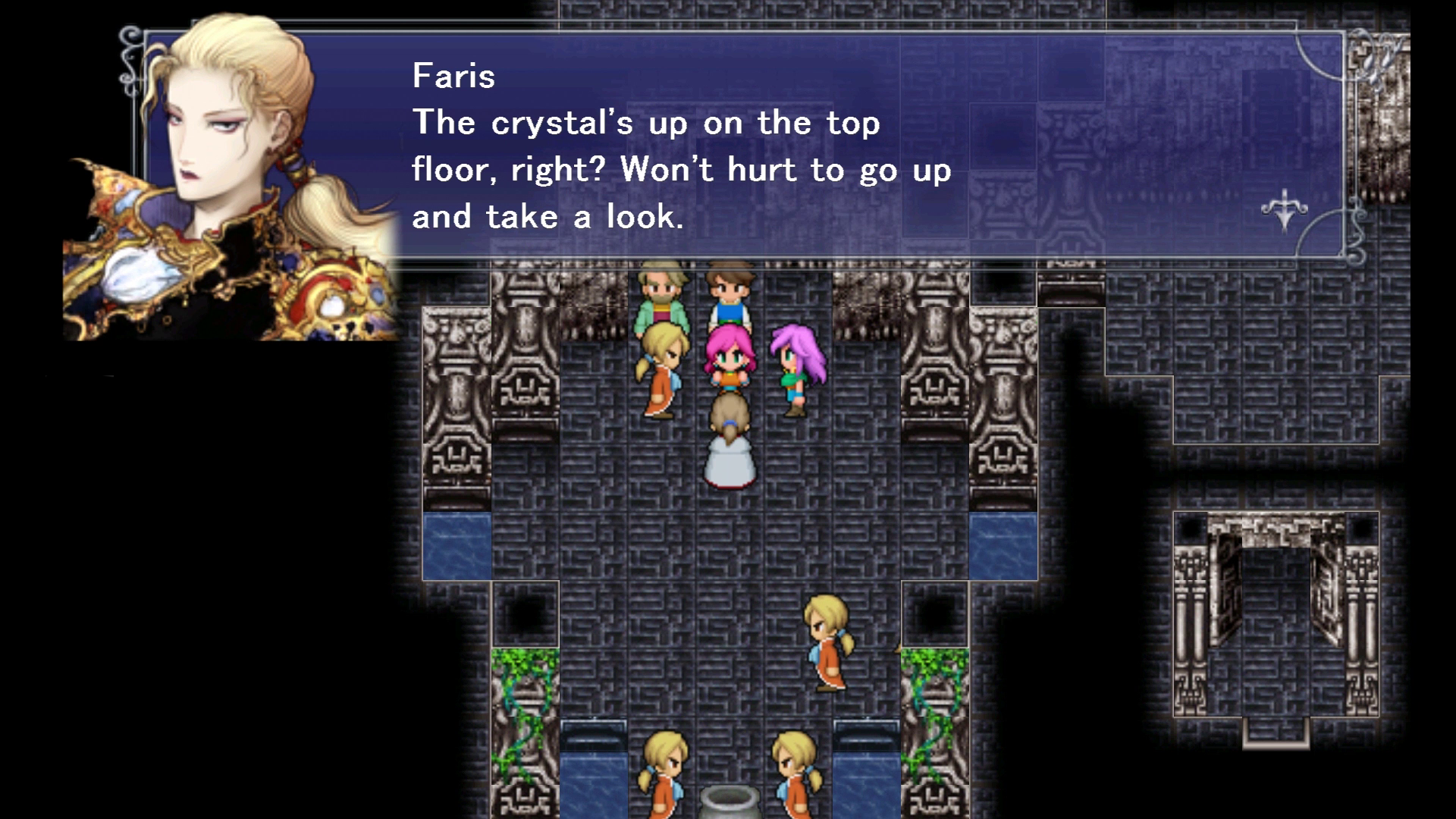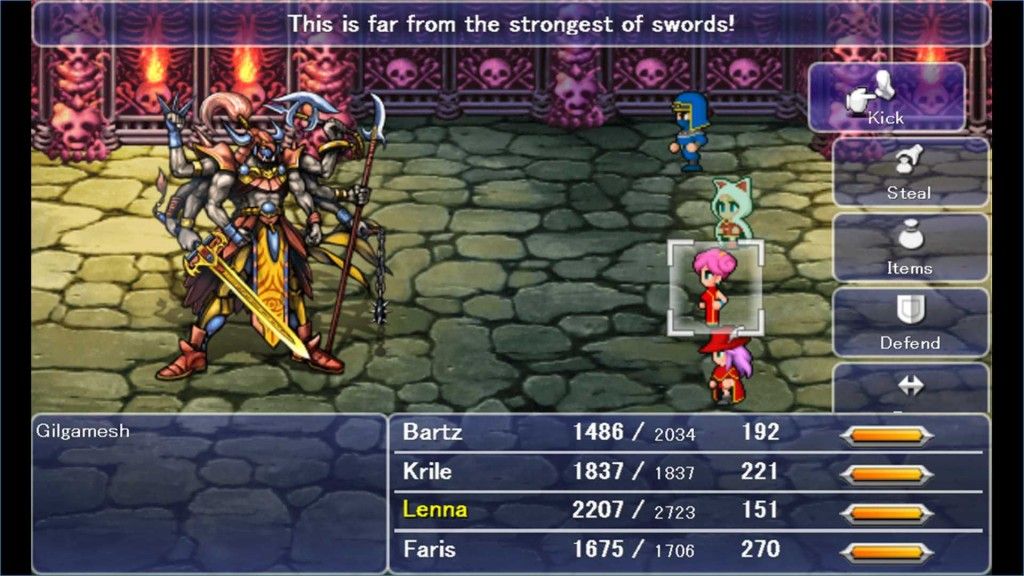Interestingly, the aesthetic thing the game is doing with these attacks' names - giving them an English name, but putting them next to the Japanese character for their name - is not far from what the Samurai in FFXIV would do. In FFXIV, a Lancer has a move like "Raiden Thrust," but a Samurai has a move like "Tsubame-gaeshi," despite the two jobs ostensibly being translated from Japanese; there was a choice in the localization to preserve the Samurai's 'Japanese' feel by transliterating, but not translating its technique, so we do not use the 'Swallow Reversal.'
A minor note that I found it a little amusing you used "Raiden Thrust" from DRG/LNC as your counter-example, because "Raiden" here is almost certainly 雷電, ie "lightning", and in FFXI the weaponskill did cause lightning-element damage. Possibly it was kept as "Raiden" to emphasize "this does actual lightning damage", rather than a potential misunderstanding of "oh, you mean lightning-fast".
But yeah, SAM (and NIN) is well-known among FFXIV players for being Very Japanese, to the point where you pretty much need to either know Japanese to figure out what the abilities
mean, or you memorize it based on letter arrangement or ability icon. To be fair, this isn't limited to Japanese (eg PLD and "Requiescat"), but even that matches the point about making the Job "feel" a certain way by not using English terms in localization.
FFVI's remakes go further by putting the Japanese kanji next to the English word, thus making Bushido feel even more Japanese. It's a great touch that I love.
"You're a human being before you're a soldier," he says, "don't be so eager to throw away your life." On the one hand, we have Leo clearly posed here as a decent general, sparing with the lives of his men, unwilling to commit to reckless courses of action. Not pusillanimous, but reserved; conscious of the human cost of warfare though, by his being a general in the Empire, fully willing to shoulder that cost when necessity demands it.
On the other hand, this can't possibly reflect the ideology of the Empire as a whole. Kefka was fully willing to burn Figaro to its foundations; Kefka, we know from having done Locke's scenario first, is planning to poison the entire population of Doma right now; Celes protested against these measures and was arrested, demoted, and sentenced to execution by soldiers who see her as nothing more than a traitor. Gestahl's speech, in the brief flashback we saw of him, had blatant fascist overtones and claimed the entire world as his people's birthright. Whatever sensibility and human decency Leo has carried with him, I don't think it's a good fit for the Empire.
It's a good fit for Actual Strategy That Works, though. The Empire needs to preserve its armies, needs to avoid its conquered or core territories losing faith in the Empire's might and prosperity by throwing their children's lives away in pointless assaults. General Leo isn't just a humane general, he's also one who understands the delicate balance he's playing with here.
But when he concludes "Emperor Gestahl wouldn't want you to die for nothing," I think he's fooling himself.
Leo is basically Regula van Hydrus here. I think you once posted an analysis comparing how Gaius van Baelsar viewed the Garlean Empire vs how Regula viewed it? It could also apply to General Leo, who matches the True Loyalist interpretation: whether or not he's a "good man" who cares for his soldiers, he's still stolidly doing the bidding of a genocidal and expansionist empire, because he
believes in the Emperor. Or rather, believes in the version of the Emperor in his head, trusting that the Emperor has a reason for all the atrocities being done, and trusting that there's a Greater Plan.
As the waters turn a sickly purple, the poison spreads through the river and begins to take his toll on the Doman garrison, most of the inhabitants of the castle (implausibly, if we're honest; this is happening way too quickly) succumbing within moments.
I think what really stuck with me the first time I saw this scene was that Kefka is poisoning an entire castle and everyone inside it, doing war crimes explicitly against the orders of the previous commander, all while his theme was playing:
I can't quite describe what follows with words. In order to understand, you will need to listen to the fucking
Danny Elfman-ass tune that plays over the next character introduction:
Previously heard in a goofy "there's sand on my boots!" sequence, and now playing during a horrific massacre.
This scene was also so famous that when the marketing for Stormblood revealed the area around FFXIV's Doma and how it had the One River flowing next to it,
so many people (including myself) were
absolutely convinced that something horrible was going to happen to it.
Isn't that other guy never seen again after this? If he does actually outlive it though, that would be a reasonable explanation of what the fuck happened.
It's difficult to tell. We never see the other guy again, but we also never see him
die. He joins Cyan in the search for survivors, but just stands sadly outside the door to a room and says that everyone there is dead. Then the plot moves on, and we never learn what happened to him.
Still, given he survived the initial poisoning with Cyan, it's reasonable to assume that he eventually wanders off to find his own path in life post-Doma, like Cyan does.


